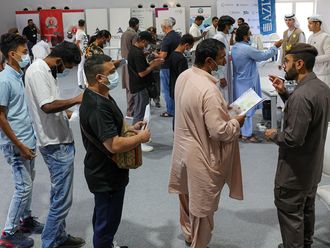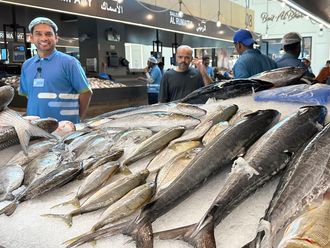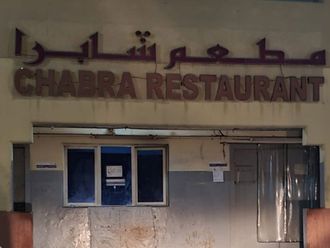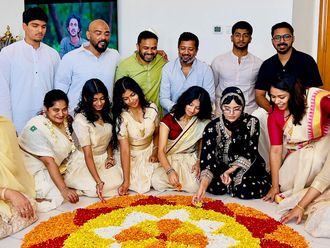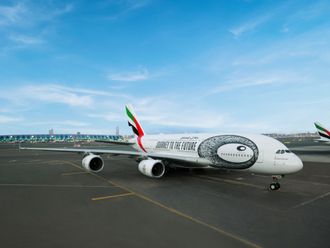Dubai: Vendors of traditional Omani sweets, commonly known as halwa, are finding growing enthusiasm for their products in the UAE, but there is also concern that sweet-making as a family tradition may be dying out among Omanis in the UAE.
The sweet which is made of sugar, saffron, nuts, rosewater, cardamom, and eggs is often eaten and handed out during celebrations and religious occasions, and is widely popular in Gulf countries.
Many Omani sweets shops across the UAE and the Arabian Peninsula are owned and run as family businesses.
As coming generations are offered a growing range of alternative career opportunities, some of the treasured secret recipes may be lost.
Mubarak Mohammad Abdullah, whose father opened one of the first Omani sweets shop in Dubai 65 years ago, said he learned the art of making the sweets from his late father and currently shares his Deira kitchen with two other students of his father, both of whom are Indians.
"If my children want to become doctors or engineers, I won't say no. I didn't have the opportunities available today so I continued to make sweets, but I am very happy with what I am doing, thank God," he said.
The break in the family chain is leading to sweets shops becoming more of an economic opportunity than a traditional practice.
Rafiq P. is an Indian national who runs an Omani sweets shop in Abu Dhabi. He learned how to make the sweets from his brother in Oman, who was in turn taught by his employer, an Omani.
"I used to work with my brother in Barka [in Oman] but my employer closed the shop so I moved to Abu Dhabi and set up my own business," he said, adding that he sells 20 to 30 kilograms of halwa a day.
Salim Ali Al Hosny is keen on keeping his "inherited expertise" in the family. His son and niece run two of his seven outlets in the UAE, and know the secret recipe.
"We are a family of sweet makers that has been in the business since 1920. I have made sure to teach my children," he said.
Both Al Hosny and Abdulla agree that the key to running a successful Omani sweets shop is a long-established reputation.
"You can't just set up a shop and expect it do well. People have known our sweets for a long time, and can recognise our distinct taste," said Abdulla.
The halwa's popularity in the UAE led Al Hosny to close shop in Oman and move to the UAE fifteen years ago.
"People here really like the halwa. I have a 500 kilogram order for an upcoming wedding. Omanis don't place such big orders. They don't like to spend as much," he said.
Ingredients
A sticky and jelly-like sweet
Omani halwa is a traditional sticky, jelly-like sweet made of wheat starch, eggs, sugar, water, ghee, saffron, cardamom, nuts, and rose water from the Jebel Al Akdhar (Green Mountain) in Nizwa, Oman.
Omani halwa comes in different varieties, of which the most popular is the sultani kind, made of a special kind of sugar. Others are the muscati, zayt al zaytoon (olive oil), tamr (date), and haleeb (milk) varieties. Prices range from Dh20 per kilogram to Dh100, depending on the ingredients and their origin.


